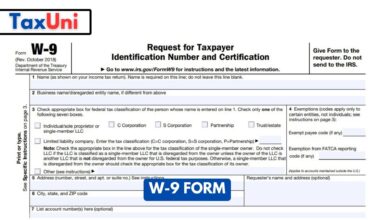Pub 1771
The IRS recently issued a new version of Publication 1771, Charitable Contributions-Substantiation and Disclosure Requirements. This publication is important for church treasurers because it outlines the substantiation requirements for charitable contributions. Failure to follow these requirements can result in financial penalties and unhappy donors.

IRS Publication 1771 (Pub 1771), Charitable Contributions–Substantiation and Disclosure Requirements, discusses federal tax law for organizations that accept tax-deductible charitable donations, such as charities and churches, as well as people who make contributions. The IRS imposes recordkeeping and substantiation requirements on charity contributors, as well as disclosure requirements on charities that accept certain in-kind contributions. Substantiation rules vary depending on the value and type of property donated. For example, a taxpayer who donates property worth more than $250 must provide a written acknowledgment from the charity that includes a description of the property and a good faith estimate of its fair market value. This can be done in a letter, a postcard, or even an email. However, it is important to note that an email acknowledgment is not considered a “contemporaneous” written acknowledgment.
In addition to substantiation requirements, Publication 1771 also discusses gift-giving rules for nonprofits. The publication emphasizes the importance of thanking donors for their gifts, and it details the record-keeping requirements that nonprofit charities must maintain. For instance, charitable nonprofits are required to provide donors with written disclosure statements for donations made in exchange for goods or services (quid pro quo contributions). In addition, the publication discusses reporting requirements for tax-exempt organizations that conduct gambling. This is an important topic for church treasurers to understand because gambling can significantly impact a church’s tax-exempt status and deduction limitations.

Charitable Contributions
If a donor gives a gift of cash or property, it is generally deductible up to 60% of the taxpayer’s adjusted gross income (AGI). If the donation is made through a donor-advised fund (DAF) established by a public charity, only 50% of the AGI limitation applies.
Charitable organizations must provide donors with contemporaneous written acknowledgments for contributions of $250 or more. The acknowledgment must contain a description and good faith estimate of the value of any goods or services that the organization provided in return for the donation. In addition, the written acknowledgment must state whether the organization has a Quid Pro Quo limitation.
Donors must also keep track of their monetary donations. Qualifying documentation includes bank statements, credit card receipts, and canceled checks. Donors should keep copies of their W-2 forms or pay stubs for contributions made through payroll deductions. When a charitable donation is of appreciated property, the donor must reduce the contribution by the amount of long-term capital gain that would have been recognized had the property been sold at fair market value in the year of the donation (Treas. Reg. SS 1.170A-15(b)).
Many local governments, school districts, and other political subdivisions encourage charitable donations by setting up local charitable gift reserve funds for donors to contribute to. These contributions are taxable to the donor but do not count toward the AGI limitations for federal tax purposes.

Substantiation and Disclosure Requirements
The IRS requires taxpayers to meet substantiation and disclosure requirements when they claim charitable contributions. The methods for meeting these requirements vary based on the value and type of property donated. For example, for monetary gifts under $250, the donor must provide a bank record or written communication from the donee showing the name of the donee and the date of the donation (Treas. Reg. SS 1.170A-13(c)(7)(iii). For other types of property, the donor must either attach a separate Form 8283 for each item of property or aggregate all similar items and submit one form for the total amount claimed.
Making industry payments a matter of public record via Open Payments presumes to mitigate the effect of COI disclosure opacity on research integrity. However, the preponderance (81.1%) of physician-authors who received payments in NEJM and JAMA did not report all general company payments as COIs even though ICMJE guidelines and journal policies require COI self-disclosure.





